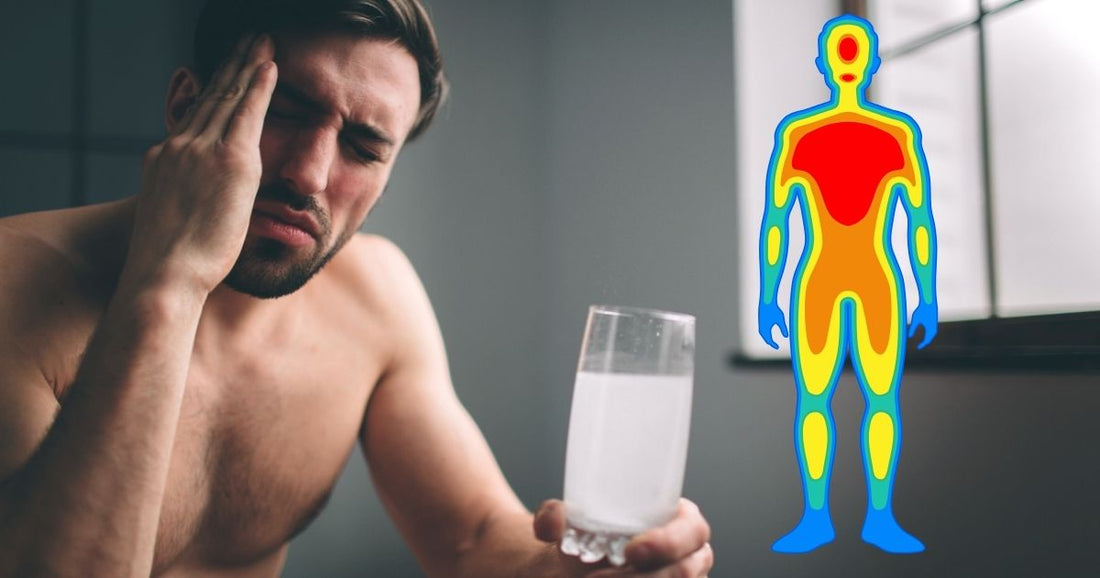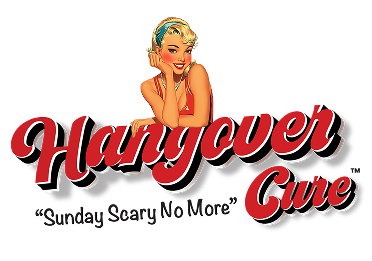
The Science of Hangovers: What Actually Happens to Your Body?
Share
Ever wondered why a fun night out turns into a groggy, miserable morning? From dehydration to inflammation, here's what’s really happening in your body—and how Get Hangover Cure helps you bounce back fast.
Ever Wake Up Feeling Like a Train Hit You?
We've all been there. A night out filled with laughter, drinks, and good times… only to wake up feeling like your brain got steamrolled. That groggy, head-pounding, nauseous aftermath is no joke. But have you ever wondered what’s really going on in your body during a hangover?
Understanding the science behind hangovers isn’t just for health nerds. It’s the first step to avoiding that next-day misery—and bouncing back faster when it hits. Let's break it down.
1. Dehydration: The Sneaky Saboteur
Alcohol is a diuretic, meaning it tells your body to dump water faster than usual. More bathroom trips mean less fluid in your system, and that dehydration does some damage:
-
Dry Mouth and Thirst: Your body’s screaming for water.
-
Headaches: Your brain literally shrinks slightly due to fluid loss, pulling on pain-sensitive membranes.
💡 Pro Tip: Sip water between drinks and chug a big glass before bed to lessen the damage.
🧪 Scientific Source: Mayo Clinic notes dehydration is one of the primary causes of hangover symptoms. [source]
2. Electrolyte Imbalance: When Your Body’s Out of Whack
Along with water, your body loses key electrolytes like sodium, potassium, and magnesium.
This can lead to:
-
Muscle Cramps and Weakness: Without potassium, muscles just don’t work right.
-
Fatigue and Confusion: Sodium and magnesium help your nerves communicate properly.
Get Hangover Cure contains essential electrolytes to help your body rebalance quickly.
3. Toxic Buildup: Blame Acetaldehyde
Your liver processes alcohol into acetaldehyde, a nasty little toxin far more harmful than alcohol itself. While your body eventually breaks it down into harmless acetate, the time it takes leaves you feeling awful.
You may notice:
-
Nausea & Vomiting: Acetaldehyde irritates your stomach lining.
-
Sweating & Rapid Heart Rate: Your body’s working overtime to detox.
🧪 Scientific Source: According to the National Institute on Alcohol Abuse and Alcoholism (NIAAA), acetaldehyde plays a key role in the severity of hangovers. [source]
4. Blood Sugar Crash: Energy Drain Incoming
Alcohol interferes with your liver’s ability to release glucose, causing a dip in your blood sugar.
Symptoms include:
-
Dizziness and Shakiness: Your brain’s low on fuel.
-
Irritability and Anxiety: Mood swings can hit hard when glucose levels crash.
Pro Tip: Eat a balanced meal before and after drinking. Carbs are your friend here.
5. Inflammation Nation
Alcohol sparks an immune response that increases inflammation throughout your body. That inflammation affects:
-
Muscles and Joints: Cue the body aches and soreness.
-
Cognitive Function: You may feel foggy, slow, or have trouble focusing.
Get Hangover Cure includes anti-inflammatory nutrients to help calm your system down.
6. Poor Sleep Quality: That “I Didn’t Sleep at All” Feeling
Sure, alcohol helps you fall asleep faster, but it seriously messes with your REM sleep—the deep, restorative kind.
This leads to:
-
Fatigue: You’re not rested, no matter how long you slept.
-
Memory Issues: REM sleep is crucial for cognitive function and mood regulation.
Pro Tip: Avoid alcohol close to bedtime, and don’t count on booze for real rest.
So… What Can You Do About It?
Now that you know what’s actually going wrong inside your body, here’s how to set it right. These strategies can help you fight off that dreaded hangover:
✅ Rehydrate Like It’s Your Job
-
Water
-
Coconut water
-
Electrolyte powders
✅ Replenish Nutrients
-
Potassium: Bananas, avocado, sweet potatoes
-
Magnesium: Spinach, almonds, dark chocolate
✅ Support Detox
-
Milk thistle and turmeric support liver health
-
Vitamin C helps reduce inflammation
✅ REST
Honestly, sometimes your body just needs a break. Hydrate, eat clean, and take a nap if you can.

Why Choose Get Hangover Cure?
We get it—you don’t always have time to whip up a spinach smoothie and meditate your hangover away. That’s why we created Get Hangover Cure, a fast, effective, and scientifically formulated solution that gets you back on your feet.
Here’s What Makes It Awesome:
-
💧 Replenishes Electrolytes: So you feel human again, faster.
-
⚡ Liver Support Ingredients: Helps break down toxins efficiently.
-
🧠 Brain and Mood Boosters: Reduces fog and helps with focus.
-
💤 Restorative Nutrients: Designed to calm inflammation and restore balance.
Real Talk: Hangovers Don’t Have to Wreck Your Day
You don’t have to choose between fun nights and miserable mornings. Understanding the science of hangovers—and prepping with Get Hangover Cure—means you can enjoy both the party and the next day.
FAQs
Q: Can I take Get Hangover Cure before drinking?
A: Absolutely! For best results, take one dose before drinking and one before bed.
Q: Is it safe for everyone?
A: Our formula is made with natural, safe ingredients, but consult your doctor if you have any health conditions or take medications.
Q: Will it cure my hangover completely?
A: While nothing can guarantee a 100% cure, Get Hangover Cure dramatically reduces the severity of symptoms and helps your body recover much faster.
What’s Next?
✅ Order Get Hangover Cure
💡 Stay hydrated
🍽️ Eat clean
😴 Rest up
Don’t let hangovers control your day. Take charge, feel better, and enjoy life to the fullest—with a little help from Get Hangover Cure.
Why Choose Get Hangover Cure?
At Get Hangover Cure, we’ve developed a scientifically backed solution to combat the effects of hangovers. Our formula is designed to:
- Rehydrate your body with essential electrolytes.
- Support liver function to process toxins effectively.
- Replenish nutrients lost during drinking.
Don’t let hangovers ruin your day—try Get Hangover Cure and feel the difference!
Ready to take control of your mornings after a night out? Order Get Hangover Cure now and experience fast, effective relief backed by science.
